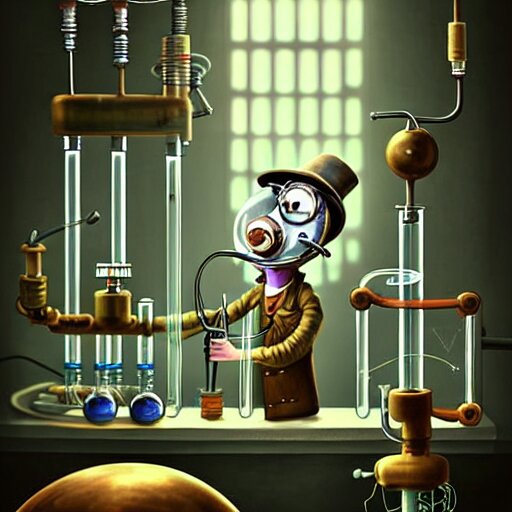B.Sc in Chemical Engineering
Five for regular and six for extension
The admission into regular undergraduate courses is done based on the results of the Ethiopian Higher Education Entrance Certificate Examination (EHEECE), the choice of the student, and the capacity of Departments/Schools/Centers. The basic admission criterion for regular program is successful completion of the common freshman courses, subject to possible screening on the basis of academic performance.
Students must take and pass all the required modules to satisfy the requirements for graduation. CGPA and MGPA at least 2.00 No “F”, “D” grades Other requirements might be set by specific University graduation requirements.
Program Details
Chemical engineers are taught to link chemistry and engineering to produce substances or products that improve people’s lives. Chemical engineers develop techniques and processes to convert raw materials into products such as chemicals, plastics, food, pharmaceuticals, petroleum products, and other consumer goods while maximizing efficiency and minimizing risk and environmental impact. Chemical Engineering deals with the design and maintenance of chemical plants and the development of chemical processes for converting raw materials or chemicals into valuable forms. It combines knowledge of Chemistry and Engineering for the production of chemicals and related by-products. This branch of engineering is a varied field, covering areas from biotechnology and nanotechnology, mineral processing, pharmaceuticals, synthetic fibers, petroleum refining plants, etc.

Carrier Direction
- Design chemical plant equipment and devise processes for manufacturing chemicals and products, such as gasoline, synthetic rubber, plastics, detergents, cement, paper, and pulp, by applying principles and technology of chemistry, physics, and engineering.
- On the job, you would: Monitor and analyze data from processes and experiments. Develop safety procedures to be employed by workers operating equipment or working in close proximity to ongoing chemical reactions. Develop processes to separate components of liquids or gases or generate electrical currents, using controlled chemical processes.
- Chemical Engineers are concerned with the designing, supervision, construction, installation and operation of plants and equipment’s for manufacturing chemical products Chemical Technologists deal with the production of substances with new properties which require new methods of production in the fields of petroleum refining & fertilizer technology.
- Chemical Engineers involves in the processing of food and agricultural products, paints and dyes, recycling metals, glass and plastics, cosmetics, mineral based industries and prevention and control of environmental hazards.
- Chemical Engineers involves in the research and development activities in the Bio-Tech firms to find out new drugs.
What is the future for a Chemical Engineering graduate?
Work of Chemical Engineer combines several fields such as chemists, industrial engineers, materials engineers as well as electrical engineering’s. Chemical Engineers can find the opportunities in any of the following categories As Process Engineer in petroleum/petrochemical industry & petroleum refineries
Jobs directly related to Chemical Engineering:
- Biotechnologist
- Chemical engineer
- Color technologist
- Energy engineer
- Nuclear engineer
- Petroleum engineer
- Product/process development scientist
Jobs where your degree would be useful include:
- Analytical chemist
- Energy manager
- Environmental engineer
- Manufacturing Engineer
- Materials engineer
- Mining engineer
- Production manager
- Quality manager
- Waste management officer
- Water engineer
Employers cover a range of industrial sectors. Any company involved in large-scale conversion of raw materials into a product will require chemical engineers.
You’ll find major employers in gas and oil extraction, oil refining, nuclear and other power generation and process industries, including pharmaceuticals, fine and heavy chemicals, and agrochemicals. Other manufacturing industries that need chemical engineers include those supplying:
- Fibers and polymers
- Food and drink
- Plastic and metals
- Pulp and paper toiletries.
Many chemical development engineers work for engineering consultancy and contracting firms. There are also opportunities to work in pollution control, environmental protection, energy conservation, waste recovery and recycling, alternative energy, medical science, and health and safety. Engineers are well-equipped for business roles and may also go into careers in financial services, management, consultancy, or the law.
Chemical Engineering graduates have plenty of job opportunities in manufacturing and service industries such as food, materials, specialty chemicals, plastics, power production, biotechnology, Tyre manufacturing, nanotechnology, mining process mineral based industries, petrochemical, plants, pharmaceuticals, synthetic fibers, chemical engineering designs, nuclear energy, materials science, development of new sources of energy and even medicine. Some opt to work in laboratories and universities as a professor.
Various sectors where they can seek employment are:
- Pharmaceuticals
- Energy
- Water
- Food & Drink
- Oil and Gas
- Process Plants & Equipment
- Biotechnology
- Materials
- Chemicals
- Consultancy
Engineering and Technology
- Product and services development
- Design
Math and Science
- Arithmetic, algebra, geometry, Calculus, or Statistics
- Chemistry
Manufactured or Agricultural Goods
- Manufacture and distribution of products
Arts and Humanities
- English language
Courses
| Courses | Course ECTS | Cr/Hr. |
|---|---|---|
| Communicative English Skill | 5 | 3 |
| Basic Writing Skills | 5 | 3 |
| Civics and Ethics | 5 | 3 |
| Introduction to Logic | 5 | 3 |
| Applied Mathematics I | 7 | 4 |
| Applied Mathematics II | 7 | 4 |
| Engineering Mechanics I-Statics | 6 | 3 |
| Engineering Mechanics II-Dynamics | 6 | 3 |
| Introduction to Engineering Profession | 2 | 1 |
| Engineering Drawing | 6 | 3 |
| Introduction to Economics | 5 | 3 |
| Introduction to Computing | 5 | 3 |
| Engineering Thermodynamics | 4 | 2 |
| Applied Modern Physics | 5 | 3 |
| Electromagnetic Fields | 5 | 3 |
| Electrical Materials and Technology | 5 | 3 |
| Applied Engineering Mathematics III | 7 | 4 |
| Computational Methods | 6 | 3 |
| Probability and Random Process | 5 | 3 |
| Fundamental of Electrical Engineering (Circuit) | 6 | 3 |
| Electrical Engineering Lab I | 3 | 1 |
| Electrical Workshop Practice I | 3 | 1 |
| Applied Electronics I | 5 | 3 |
| Electrical Engineering Lab II | 3 | 1 |
| Applied Electronics II | 5 | 3 |
| Electrical Engineering Lab III | 3 | 1 |
| Signals and Systems Analysis | 6 | 4 |
| Network Analysis and Synthesis | 6 | 4 |
| Introduction to Electrical Machines | 6 | 3 |
| Machine Lab | 3 | 1 |
| Electrical Workshop Practice II | 4 | 2 |
| Digital Logic Design | 6 | 4 |
| Object Oriented Programming | 5 | 3 |
| Computer Architectures and Organization | 5 | 3 |
| Digital Signal Processing | 5 | 3 |
| Electrical Engineering Lab V | 4 | 3 |
| Introduction to Instrumentation | 5 | 3 |
| Introduction to Communication Systems | 5 | 3 |
| Introduction to Control Engineering | 5 | 3 |
| Introduction to Power systems | 5 | 3 |
| Microcomputer and Interfacing | 6 | 3 |
| Database Systems | 5 | 3 |
| Data Structures | 5 | 3 |
| Algorithm Analysis and Design | 4 | 3 |
| Software Engineering | 5 | 3 |
| Operating systems | 5 | 3 |
| Introduction to Compilers | 5 | 3 |
| Data Communication and Computer Networks | 5 | 3 |
| Computer and Network Security | 5 | 3 |
| VLSI Design | 5 | 3 |
| Embedded Systems | 6 | 3 |
| Introduction to Robotics | 5 | 3 |
| Modern Control Systems | 5 | 3 |
| Electrical Machines | 5 | 3 |
| Power Electronics | 5 | 3 |
| Electric Drives | 5 | 3 |
| Power Systems | 5 | 3 |
| Power System Protection and Control | 5 | 3 |
| Electrical Installation | 5 | 3 |
| Energy Conversion and Rural Electrification | 5 | 3 |
| Hydropower Engineering | 5 | 3 |
| Power System Planning and Operation | 5 | 3 |
| Computer Application in Power Systems | 3 | 2 |
| Microelectronic Devices and Circuits | 5 | 3 |
| Communication System | 5 | 3 |
| Data Communication and Computer Networks | 5 | 3 |
| Telecommunication Networks | 5 | 3 |
| Wireless and Mobile Networks | 5 | 3 |
| Switching and Intelligent Networks | 5 | 3 |
| EM Waves and Guide Structures | 5 | 3 |
| Antennas and Radio Wave Propagation | 5 | 3 |
| Microwave Devices and Systems | 5 | 3 |
| Optics and Optical Communication | 5 | 3 |
| Electrical Installation | 5 | 3 |
| Electrical Machines | 5 | 3 |
| Power Electronics | 5 | 3 |
| Electric Drives | 5 | 3 |
| Modern Control systems | 5 | 3 |
| Digital Control Systems | 5 | 3 |
| Instrumentation Engineering | 5 | 3 |
| Embedded Systems | 5 | 3 |
| Introduction to Robotics | 6 | 3 |
| Industrial Process Control and Automation | 5 | 3 |
| Principles of Electronics Design | 5 | 3 |
| Analog System Design | 5 | 3 |
| Digital System Design | 5 | 3 |
| VLSI Design | 5 | 3 |
| Microelectronic Devices and Circuits | 5 | 3 |
| High Frequency Electronic Devices and Systems | 5 | 3 |
| Power Electronics Technology andApplications | 5 | 3 |
| Optoelectronics | 5 | 3 |
| Modern Trends in Electronics Engineering | 5 | 3 |
| Research Methods and Presentation | 3 | 1 |
| Semester Project | 4 | 2 |
| Industry Internship | 30 | 15 |
| Entrepreneurship | 4 | 2 |
| Industrial Management and Engineering Economy | 5 | 3 |
| B.Sc. Thesis | 12 | 6 |

